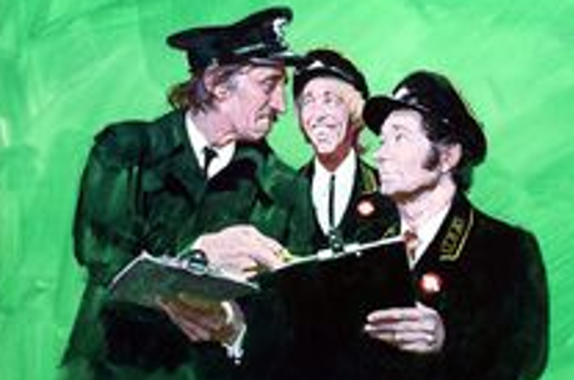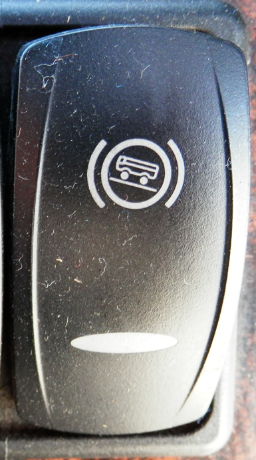
I have about twenty different buttons on my dash board. Imagine a jet airliner cockpit. That’s what my bus looks like – well … almost.
As a highly qualified and highly trained driver, I know what all of those buttons do. My favourite one of course is the one you press to open and close the pneumatic door. I press that button and ‘Whoooosh’, the door opens. I press the same button and ‘Whoooosh’, the door closes. I could do that all day. If you’re ever on my bus I’ll make sure that you get a chance to push that button. It’s a very special button!
Other buttons I have at my disposal include buttons to demist, turn on the drivers light, turn on the driver’s fan, and the saloon lights button. I have buttons to turn on the air conditioner when it’s hot and the heater when it’s cold. There are buttons to activate the headlights, the hazard lights, the flashing school lights and, another one of my favourites, (and a must-have for all bus drivers), the button to turn on the radio.
There is one button on my dash though, that if I pressed it, I’m not quite sure what would happen. Putting it simply, it’s a mystery button. I don’t know what it does. Here’s a picture of it:

If you look closely at the image on the button it depicts a bus sort of quaking and shaking, rocking and rolling. I don’t know what it does?? Should I press that button to find out or should I just leave it alone? If I press it, will the bus go into an uncontrollable ‘shake and quake’? Will the wheels fall off? Will the vehicle slam onto its side or will the driver be ejected into the air? I simply don’t know, so I feel safer simply leaving it alone.
This mystery button presents various issues for me. You’re probably asking, why don’t you ask someone else what it does? An immediate (though quite sad) answer to that is that now I’ve been driving this bus for a year, I should know what it does. If I ask, I may look like an idiot. It also introduces issues of risk and facing the unknown.
As I approach the question of risk I am reminded of one of my favourite episodes in the New Testament, in Matthew 14:29 Peter (no relation) is commanded by Jesus to ‘come out of the boat and walk upon the water’. This is about taking risks – pressing that ‘mystery button’. Maybe I should remember the words from a song I wrote a while back about his very episode and apply it to my bus driving?
“I am Peter in the boat, I live a life of things that float,
now it feels like I’m all alone, my vessel sinking like a stone.
Nervous feet now in the waves, nervous footsteps of the brave,
sinking only when I trace my steps without seeking your face”.
Then….
”you call me, you call me, you call me – to walk upon the water”.
This is risk!
The message in Matthew is clear. If we lose sight of Jesus in mind, heart and spirit, we’ll sink. If we keep focus on the face’ of Jesus we have the capacity even to walk on water. Focus through faith can enable us to do things that involve risk, if we know they are right.
There’s also the issue of facing the unknown – something we all do each and every day. Every day, we are faced with buttons we’re not familiar with. We may be quite unsure what will happen if we press them.
So, let’s go straight to the words of the prophet Isaiah who, always seems to make sense to me and inspire me with his words of wisdom and encouragement:
Fear not, for I am with you; be not dismayed, for I am your God; I will strengthen you, I will help you, I will uphold you with my righteous right hand. (Isaiah 41:10)
Equally, we could visit the words of St Paul in his letter to the people of Philippi:
Do not be anxious about anything, but in everything by prayer and supplication with thanksgiving let your requests be made known to God. And the peace of God, which surpasses all understanding, will guard your hearts and your minds in Christ Jesus. (Philippians 4:6-7)
Taking risks.
Facing the unknown.
Unfamiliar buttons.
These are things that challenge all of us – not only bus drivers. Should I press that button? Should I ask someone what that button does?
Maybe I will, maybe I won’t.
I sort of like having the mystery button there, and leaving it alone, as a reminder that there is risk and uncertainty in many things we do in life and as a reminder of the promise that whether I press it or not, God sits with me and guides me on the journey.
If I do eventually press it, I’ll let you know what happens. If the result is good, that’s good. If the result is not good, remember I love you all!
Peter Heazlewood
Bus Driver
